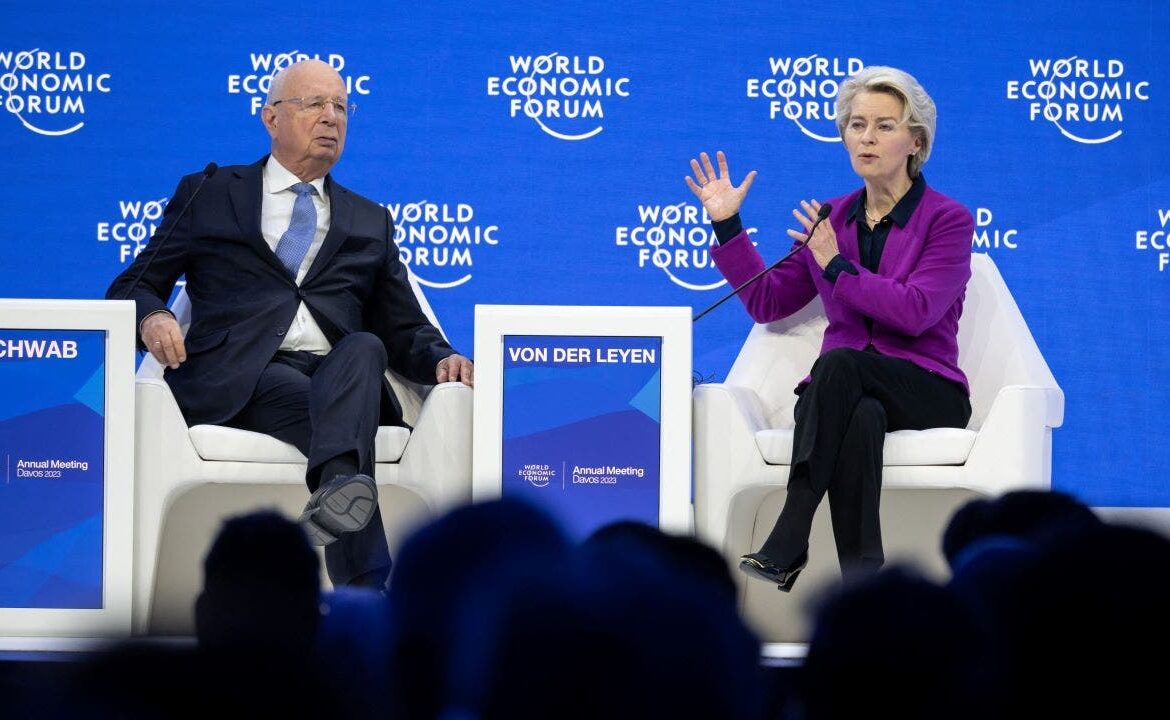
Elites in Davos strategize on how to fight ‘right-wing’ groups: ‘Hit back’

Fighting back against the ‘right wing’ and the ‘disinformation’ it spreads is a critical step for restoring trust in nongovernment organizations (NGOs) that are working with governments and other organizations on projects aimed at ‘improving the state of the world,’ according to participants on a panel Tuesday at the World Economic Forum in Davos, Switzerland.
In a discussion about ‘disrupting distrust,’ Richard Edelman, CEO of the global communications firm Edelman, said one of the ‘sadnesses’ he’s experienced over the last few years has been the ‘deterioration of trust’ in NGOs. He said companies are now trusted more than NGOs dealing with civil society issues, and he blamed this change on ‘right-wing groups.’
‘My hypothesis on that is right-wing groups have done a really good job of disenfranchising NGOs,’ he said. ‘They’ve challenged the funding sources. They’ve associated you with Bill Gates and George Soros. They’ve said that you’re world people, as opposed to actually what you are, which is local.’
Edelman said issues like how to cope with the COVID-19 pandemic, climate change and racial equity are all suffering because of reduced trust in the NGOs. He also suggested one way to regain that trust is for NGOs to fight back against these right-wing groups.
‘You guys are great at punching but terrible at taking a punch,’ he said. ‘You have to learn to do two things. One is preempt. When they’re going to punch you, you gotta know they’re gonna punch you and say, ‘Why are they punching us?’ and … we call it pre-bunking.
‘The other is when they hit you and they’re inaccurate, hit back. Don’t take it,’ he added.
Edelman and other panelists acknowledged that people opposed to environmental, social and governance (ESG) goals in the private sector are also forcing companies to reassess how to talk about those goals. When a representative of the Anti-Defamation League said companies are starting to shy away from the explicit use of ‘ESG’ as a corporate goal, Edelman encouraged companies to hold firm.
‘Business needs to stand its ground,’ he said. But he also said companies should not lose sight of the fact that they’re in business to make money and should make sure ESG goals don’t force them down a path of ‘chasing some woke illusion.’
‘Focus your attention on four issues: sustainability, on jobs and re-skilling, focus on diversity, equity and inclusion and geopolitics, like ‘Get out of Russia,’’ he said. ‘But don’t take on every issue.’
Panelist Salah Goss, senior vice president at Mastercard for social impact, said her company still has a ‘commitment’ to ESG goals but indicated there are other ways to discuss those goals. She said her company talks about ‘people, prosperity, planet.’
Another panelist, United Way Worldwide President Angela Williams, said policymakers need to find more approachable ways to present their ideas. As one example, she said the prospect of banning gas stoves can be a difficult subject for many poor Americans and needs to be couched the right way.
‘If you go to … a black woman in the U.S. and tell us we can’t use a gas stove any more because of the emissions, and we need to switch to electric, our comment is, ‘Our food’s not going to taste the same,’’ she said, adding that another question is how people will be able to afford an electric stove. ‘So where’s the credit facility that allows me to do this?’
The panel’s moderator, New York Times Opinion Editor Kathleen Kingsbury, said another issue related to trust is the ‘disinformation’ seen on social media sites, saying there are lingering questions about the extent to which Big Tech companies can remove this content.
‘I think that there are true questions around how the technology platforms disseminate information, particularly disinformation, and they see … significant challenges when it comes to content moderation and how to combat the disinformation online,’ she said.
On that issue, Edelman proposed that companies do all they can to defund sites that spread disinformation.
‘I think the first thing … that business needs to do is deprive platforms that spread disinformation of oxygen,’ he said. ‘Stop advertising. Pull your promotion money.’
Edelman said more needs to be done here, as the boycott of Twitter has had just a ‘modest impact,’ while attempts to boycott Facebook have ‘failed.’
This panel was just one of several that were convened on Tuesday. Later in the day, another discussion on the ‘clear and present danger of disinformation’ was held, moderated by former CNN host Brian Stelter.
